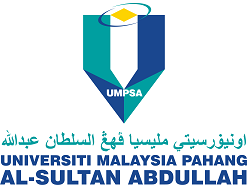KEBERKESANAN PEMBELAJARAN AKHLAK MURID TABIKA KEMAS MENERUSI MODEL PENILAIAN KIRKPATRIK DI NEGERI KELANTAN
The Effectiveness of Moral Learning Among KEMAS Preschoolers Through the Kirkpatrik Evaluation Model in the State of Kelantan
DOI:
https://doi.org/10.15282/ijhtc.v6i1.6672Keywords:
Project approach, Islamic Project ©, Morals, PreschoolsAbstract
Islamic Project © is a teaching and learning method built to inculcate the education of preschool children which includes manners in conversation, socializing and so on. The aim of this study is to develop and evaluate the effectiveness of the use of Islamic Project © methods by preschool teachers in helping them to improve the morale of preschool students in the Kelantan state. This study involved three phases. The first phase involves analysis of past studies and analysis of research needs. The second phase is the construction phase of the Islamic-Project Module © based on the Delphi Modified Technique. The third phase is the evaluation phase. This phase involved 50 people from the intervention group and 50 from the control group. The effectiveness of the intervention was assessed using Kirkpatrick's 4-Level Rating Model. The results showed that the structure and content of this Islamic Project © module reached a very high level of satisfaction (CVI = 0.95). The ANCOVA analysis also showed that there was a significant difference in all comparisons between the intervention and control groups, where the mean of students’ knowledge is increased in the intervention group. The results also showed a significant increases in the change of knowlegde scores between the intervention and control groups over time (F-stat=53.35 ;p-value=<0.001).
Islamic Project© ialah kaedah pengajaran dan pembelajaran yang dibina untuk menerapkan pendidikan akhlak kanak-kanak prasekolah yang merangkumi adab-adab dalam perbualan, pergaulan dan sebagainya. Matlamat kajian ini adalah untuk membina dan menilai keberkesanan penggunaan kaedah Islamic Project© oleh guru prasekolah dalam membantu meningkatkan perkembangan akhlak murid prasekolah di Tabika-tabika KEMAS negeri Kelantan. Kajian ini melibatkan tiga fasa. Fasa ini melibatkan 50 orang dari kumpulan intervensi dan 50 orang dari kumpulan kawalan. Keberkesanan intervensi ini dinilai menggunakan Model Penilaian 4 Tahap Kirkpatrick. Hasil kajian mendapati struktur dan kandungan modul Islamic Project© ini mencapai tahap kepuasan yang amat tinggi (CVI = 0.95). Hasil analisis ANCOVA juga menunjukkan bahawa terdapat perbezaan yang signifikan bagi semua perbandingan dalam kumpulan intervensi dan kawalan, di mana min pengetahuan murid meningkat dalam kumpulan yang menerima intervensi . Hasil kajian juga menunjukkan terdapat peningkatan yang signifikan pada perubahan skor pengetahuan antara kumpulan intervensi dan kawalan berdasarkan masa (f(F-stat=53.35 ;p-value=<0.001).
Downloads
Published
Versions
- 2021-07-19 (2)
- 2021-07-19 (1)





